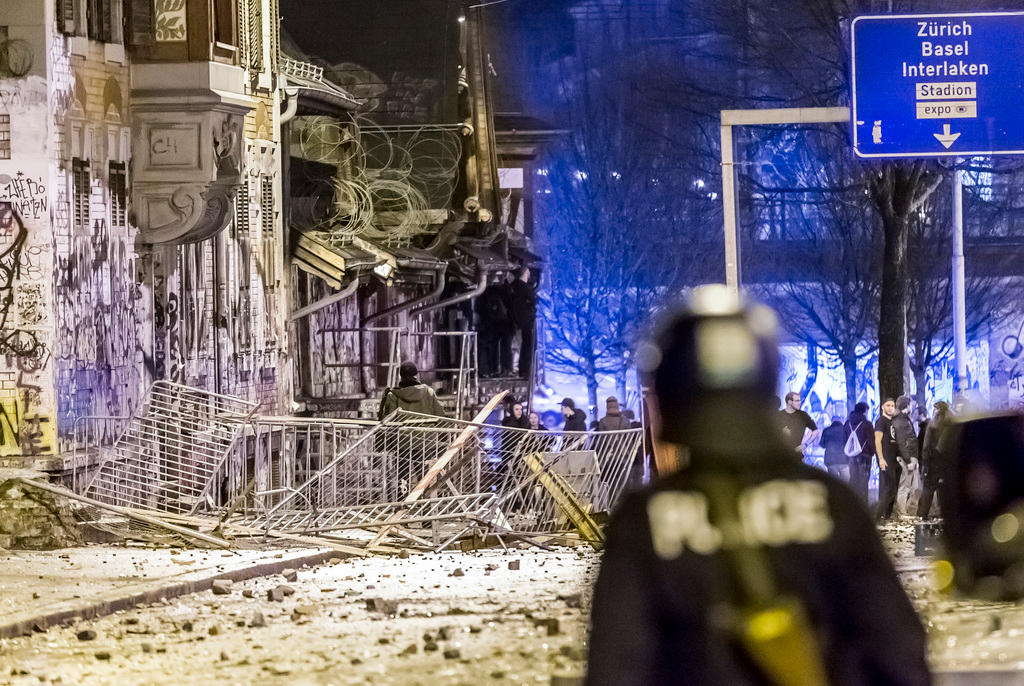Swiss monitor 500 people for online jihadist propaganda

Last year the Federal Intelligence Service (FIS) identified almost 500 people accused of spreading jihadist propaganda online, according to a report published on Tuesday. A national plan to fight radicalisation in Switzerland is currently being finalised.
According to the latest report by the federal intelligence task force TETRA, formed in 2014 to address “jihad travellers” moving between Switzerland and the Middle East, Switzerland is still a target for militants despite so far avoiding attacks like those in Germany and France.
“The most likely threat for our country is attacks that require little logistical planning and are carried out by lone attackers or small groups,” the report stated.
At the end of 2016, 497 people were being monitored by the FIS for spreading online jihadist propaganda in Switzerland or for using the country as a base for such activities. However, not all of these people are considered a threat to security, the report noted. Of 70 cases being investigated by federal police, about 60 are the subjects of a criminal proceeding.
Intelligence agents also examined 5,202 asylum dossiers for possible threats to Swiss internal security, from the 27,200 people who submitted asylum requests last year, the report went on.
The service recommended rejecting 14 of those cases, as well as taking refugee status from one other person who had already been granted asylum.
That compared with 4,910 dossiers being examined in 2015 from 39,500 asylum requests. Of 24,000 asylum requests in 2014, the Swiss intelligence service reviewed only 2,488 files.
Last year the Federal Police Office also issued 122 people with entry bans, of whom 107 were suspected of committing terror acts or of supporting banned groups.
The report said that 81 people motivated by extremist ideologies had travelled from Switzerland to conflict areas including Syria, Iraq and Afghanistan between September 11, 2001 and February 2017. This number is up from 78 a month earlier. Twenty-two of those have been killed or are believed to be dead, the report said, while 14 have returned to Switzerland.
Plan of action
The TETRA task force is currently drawing up a national plan of action to combat radicalisation and violent extremism.
It will also cover the issue of de-radicalisation measures to deal with individuals both before, during and after they are sentenced. The plan, which aims to support the work of the cantons and municipalities, should be adopted by the relevant political authorities in the autumn.
Last year, Swiss voters agreed to extend the intelligence service’s authority to monitor internet traffic, deploy drones and hack foreign computer systems, in large part to counter extremist threats.
The government is examining whether to require employees of private companies who manage asylum cases to report clients’ possible extremist behaviour to authorities.

In compliance with the JTI standards
More: SWI swissinfo.ch certified by the Journalism Trust Initiative




You can find an overview of ongoing debates with our journalists here. Please join us!
If you want to start a conversation about a topic raised in this article or want to report factual errors, email us at english@swissinfo.ch.